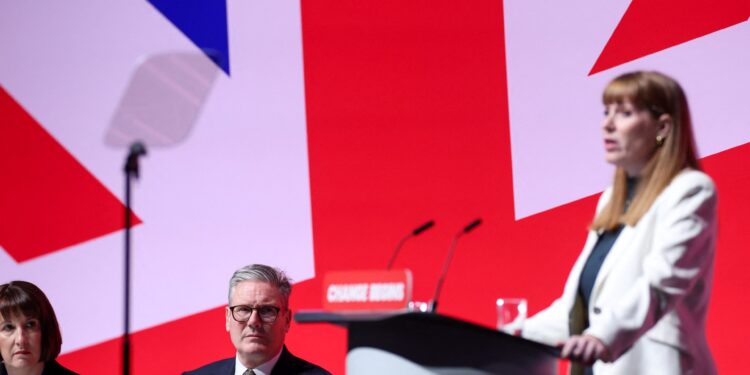London For decades, Britain has remained a favorite destination for the world’s wealthy, benefiting from a tax system that gives residents of privileges that exempt them from paying taxes on their money abroad, but with the approaching cancellation of this privilege, many of them began firmly their bags and transfer their capital to other countries that provide more flexible tax systems.
Recently, the British Parliament passed a law to final dismantling of the tax residence system in force for more than 200 years, and the government of the Labor Party intends to cancel it from April 6, considering that this system devotes “tax injustice” in favor of the wealthy.
However, this step raised concerns in the economic circles of its potential repercussions on Britain’s investment attractiveness, especially since the decision may deprive the public treasury of important tax revenues, at a time when the country seeks to recover economic.
What is the tax residence system?
The tax residence system allows residents in Britain to announce that their permanent residence outside the country, which exempts them from paying taxes on their external revenues, including inheritance tax on their assets abroad, while being satisfied with paying taxes on the money that is earned only inside Britain.
This system, which dates back to more than two centuries, has undergone several amendments and was the subject of controversy between successive governments, and it contributed to strengthening ties between the British wealthy elite and their former colonies, and wealthy families also encouraged stability in Britain, benefiting from tax exemptions on their external wealth.
Why is it canceled now?
After decades of implementing this system, the decision to cancel it came as part of a plan announced by the former Treasury Secretary in the Governor of the Conservative Party, Jeremy Hunt, last March, and according to this plan, new arrivals from the wealthy will be granted a tax exemption for 4 years for their foreign profits, before they start paying taxes on all their incomes, whether inside or outside Britain, such as any ordinary citizen.
Although the Labor Party adopted this plan, it pledged during its election campaign to apply it more strictly and accelerate its implementation, and after reaching power last July, he announced his intention to cancel the regime without delay, in a move described as a reform of “economic chaos”, which the conservative policies left during 14 years in government.
The government confirms that it seeks not to prejudice the taxes imposed on the middle class and workers, preferring to download the wealthy, their fair share of the tax burden by ending what it considers “tax evasion” that lasted for decades.
How will the decision affect the migration of the wealthy?
Insist on implementing the plan at a rapid pace that increased concerns about the displacement of the wealthy from Britain to neighboring countries that provide less strict tax systems, such as France, Italy, Greece and Spain, which may threaten Britain’s position as a global financial center.
According to the British Revenue and Customs Authority, about 74,000 people have benefited from this tax system between 2022 and 2023, most of them from Western European, India and the United States, and data indicate the increasing number of beneficiaries from China and the former Soviet Union countries, where most of them in London and its suburbs settle.
The Financial Times reveals that the number of wealthy people leaving for Britain may reach 10 thousand and 800 people in 2024, which is twice the number registered in 2023, and the newspaper indicates that the tax revenues that will be lost as a result of this displacement are equivalent to the tax -seized taxes of half a million British citizens with ordinary income, which raises the concern of decision -makers.
A study of the Adam Smith Institute shows that each of the wealthy people who left Britain last year was supposed to pay about 400,000 pounds (517 thousand dollars) as annual taxes, which is equivalent to the contribution of 50 people with medium income.
How did the government respond to criticism?
Amid warnings of the negative repercussions of the abolition of the tax system, Finance Minister Rachel Reeves made some amendments to her plan, and announced during the World Economic Forum in Davos that the government will provide tax incentives for those wishing to transfer their foreign assets to Britain, with a two -year transition period after the law entered into force.
But critics of the financial policies of the Labor Party consider these amendments to limited impact, and are not sufficient to prevent capital displacement, and they point out that wealth leaves the country quickly in light of the contraction of the British economy and the continuation of the economic crisis.



